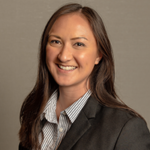
While the Office of the Comptroller of the Currency has an important role to play in the stability and supervision of banks with national charters, Acting Comptroller Michael Hsu is also interested in the role that technology plays in bank risk, competition and regulation. As a regulator, his interests include responsible innovation for banks, the blurring of the line between chartered banks and nonbanks, crypto and the increasing digitalization of banks.
The acting comptroller recently spoke with Kiah Lau Haslett, Bank Director’s banking & fintech editor, during a stop in Nashville. Their conversation ranged from challenges to deposit stability to the long-term implications of open banking for consumers. This is an edited, shortened version of that conversation.
BD: Is the OCC focusing on the relationship between deposit runoff and externalities like falling stock prices or negative media reports?
MH: The short answer is “all of the above.” We’re interested in everything about deposit behaviors because the world is not just binary: normal and stress. There are all these states in between. I think we have to attack it from several different levels.
I do think, at the same time, we have to rethink a lot of this stuff because the landscape has changed quite a bit. We have to understand these behaviors. One of the challenges is, is it stable? [The environment] continues to change, which makes it extra, extra hard. We have to put a lot of time and energy and priority into understanding this.
BD: You’ve spoken about liquidity risk in the context of deposit runs and open banking, and the OCC included instant payments in its example of innovative and new products adding to bank operational risk in its fall 2023 semiannual risk perspective. Do you see FedNow turning a deposit run into a deposit sprint? Do you see the Consumer Financial Protection Bureau’s Section 1033 rule on open banking contributing to deposit walks?
MH: FedNow is faster by design and it’s 24/7/365. I think the primary challenge is going to be on fraud because the speed of fraud is suddenly going to become really fast. There is a certain benefit to having end-of-day batching, in terms of catching things, correcting things, chargebacks — having an end-of-day process and a weekend to figure things out is not necessarily a bad thing. If you’re just on [all the time],I think the fraudsters are going to take advantage of that.
I think that’s going to be the first-order issue of FedNow. The take-up is taking place in stages. There is going to be a future state where intraday liquidity is going to be a big deal, but we have some time to figure that out.
The initial promise of open banking is account portability. That’s probably better, all things being equal, for consumers. Banks have to work for the deposit. As long as they do that in a manner that’s safe, sound and fair: Great. I think that’s going to be a process, one that we’re going to watch carefully. And I think banks are probably thinking about that already.
BD: Where is your focus longer-term when it comes to customer data in an open banking regime?
MH: I’ve been trying to focus a bit more on financial health. The way we measure financial health in general is through annual surveys at a super aggregate level, conducted by the Financial Health Network or the United Nations.
[Compare that to banks.] We have so much data. Why aren’t we doing this on an individualized basis in real time? And the analogy I give is vital signs. When you go to the doctor: blood pressure, heart rate. [This data] doesn’t need to be perfectly granular. It just has to give you a sense of “Are you spending, saving, planning?” We should be able to do this.
The reason I’m passionate about this is because I often get asked “Are you for or against buy now, pay later loans? Are you for or against earned wage access? Are you for or against overdrafts?” And the answer is nuanced. These products for some people in some situations are a lifeline; they’re really important and extremely valuable tools. In other situations: Not good. They put people into debt traps. I feel like a financial health lens could help differentiate that better.
BD: The focus on fees and overdrafts is interesting because they indicate a customer needs something, and it’s not clear if their banks can offer something else.
MH: I do think that there’s going to be some point in the future, ideally sooner rather than later, where there are more objective measures [from banks that give] people a sense of “Is my financial health better or worse than last week? Than last month? Last quarter?” Then the consumer is more empowered to make those decisions and feels more confident that this product or service is actually good for them.
BD: Why is the OCC interested in this and not the Consumer Financial Protection Bureau? Wouldn’t that be the more natural regulator?
MH: I talk to everyone about this. We’re in a world now where all these things are overlapping. It’s just a way to get away from this product by product, thumbs up or thumbs down way of looking at things.
The impetus is wanting to protect consumers. I totally get that. I have lots of sympathy for that. But if you take it to its logical conclusion, the best way to protect consumers is just to not have any products, and that doesn’t make any sense. The objective function has to be something different. It has to be empowering financial health. The only question is, how do we measure that?

